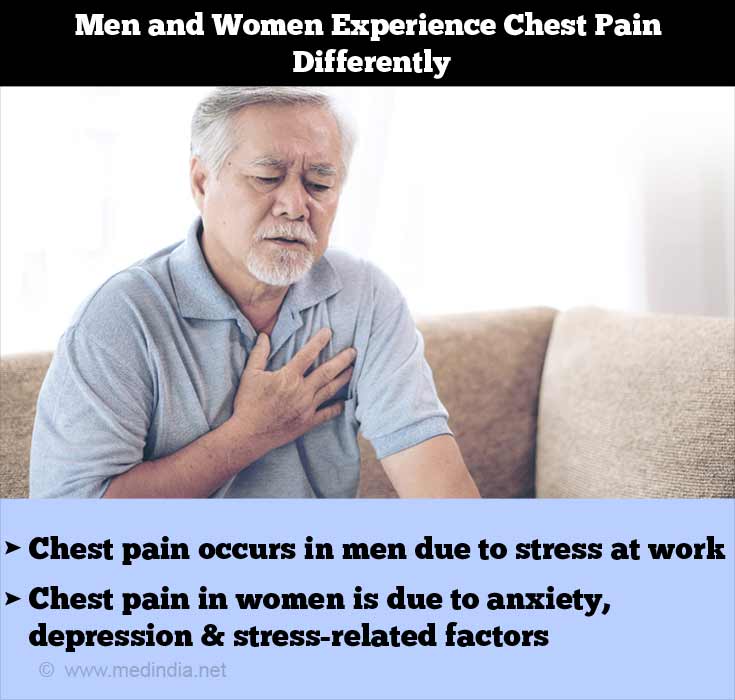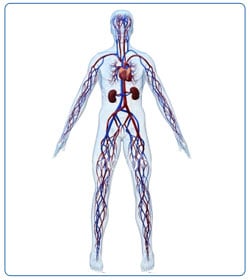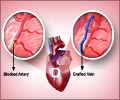- Gender Matters: Heart Disease Risk in Women - (https://www.health.harvard.edu/heart-health/gender-matters-heart-disease-risk-in-women )
Chest Pain in Men and Women
Chest pain in men is mostly heart–related. But there is an overall denial when it comes to seeking medical attention because they see themselves as healthy and are reluctant to seek medical help. This is one of the main reasons why death resulting from heart attacks, are more common in men.
Chest pain occurs in men due to stress at work and in their life in general. Chest pain in women could be due to anxiety, depression and stress-related factors. Men and women experience chest pain differently and therefore must be dealt with accordingly.

Earlier, bouts of chest pain in women were dismissed, even by doctors, as a figment of the imagination, because the necessary tests did not reveal a coronary block This resulted in the condition being dubbed as ‘cardiac syndrome X’!
Better evaluation in recent times has revealed that the condition is not imaginative and that microvascular dysfunction can be detected in these women with chest pain. Experts point out that endothelial dysfunction is the first step towards coronary artery disease (CAD).
In this condition the miniscule blood vessels that supply the heart do not dilate or constrict appropriately, leaving the heart starving for oxygen. This causes chest pain. Besides this, there is also an accumulation of plaque that cannot be easily picked up by the traditional angiogram.
How micro vascular dysfunction increases the cardiovascular risks of these women is not clear but it is pretty evident that it occurs in women who are older, who smoke, lead an inactive life and who have a family pre-disposition.
It is recommended that women with chest pain undergo the regular testing for Coronary Artery Disease (CAD). If it is undetected then the patient must be evaluated for micro vascular endothelial dysfunction, which, if present, must be treated. If this is not detected, despite the presence of chest pain and other symptoms, the patient must seriously consider methods to control the risk factors.(2✔ ✔Trusted Source
Gender Matters: Heart Disease Risk in Women
Go to source)





















